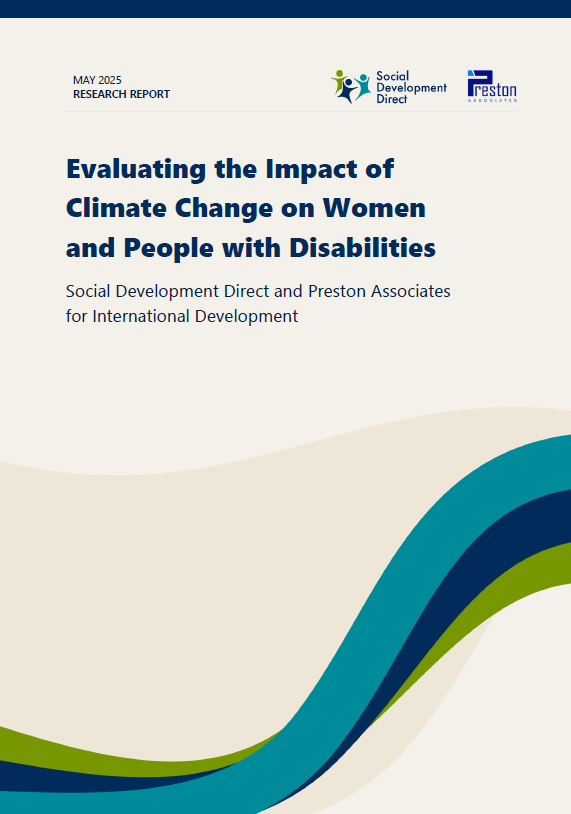
Date published
This study focuses on the impact of climate change on women and people living with a disability in Kano, Kaduna and Jigawa states in northern Nigeria. The study took a mixed methods approach involving a comprehensive literature review, key informant interviews (KIIs) and focus group discussions (FGDs) with national and state level stakeholders and local participants, including women and people with disabilities and their representative organisations. A Technical Advisory Group (TAG) supported the design and analysis phases, and ethical approval was granted by Nigerian authorities at the national and state level. The study focuses on the following research questions:
- How do people understand the causes of climate change?
- What are the impacts of climate change on women and people with disabilities in the north-west regions of Nigeria, with a focus on Kano, Kaduna and Jigawa? Does climate change act as an amplifier of existing socio-economic inequities? How?
- What are the trends and future projections?
- Does discrimination and a lack of inclusion based on additional aspects of identity (e.g. age, ethnicity or religion) multiply the impacts of climate change for women, girls and people with disabilities?
- What are the key barriers to preventing and mitigating the impact of climate change on these groups?
- What interventions work in preventing and mitigating the impact of climate change on these groups across the Global South? Who are the key players/ stakeholders – state and non-state?
Language
Type of resource
Research
Area of work this relates to